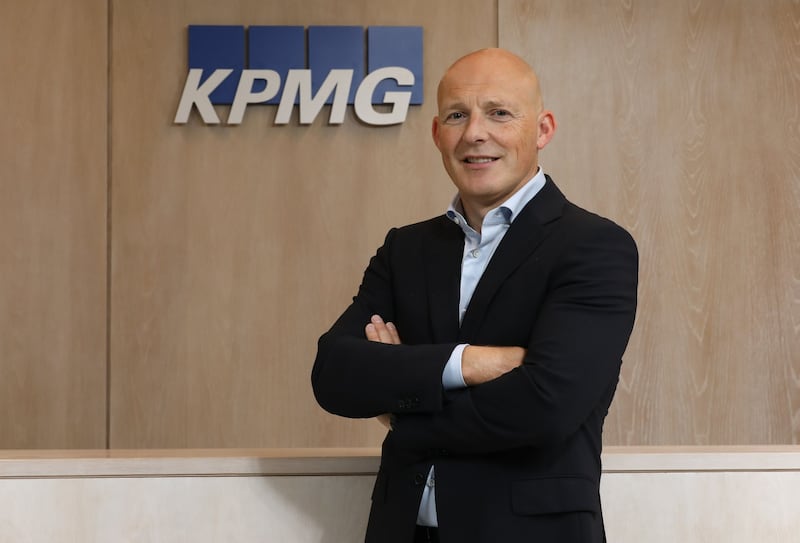Northern Ireland business leaders remain committed to growth and innovation, but their outlook is shaped by a more cautious economic context compared to peers in the Republic and globally, a new report shows.
The 11th edition of the KPMG CEOs Outlook, which interviewed 1350 chief executives between August 5 and September 10, found that 80% of bosses in Northern Ireland expect earnings to rise over the next three years (up from 70% in 2024).
This is ahead of the RoI figure of 57% and broadly in line with global optimism.
 Johnny Hanna, partner-in-charge of KPMG in Northern Ireland.
Johnny Hanna, partner-in-charge of KPMG in Northern Ireland.
But confidence in the wider economy is more muted, with headcount growth in the north anticipated to come at a lower level that in the Republic and globally.
Johnny Hanna, partner in charge at KPMG in Belfast, said: “We’re seeing cautious optimism. CEOs are committed to AI adoption, enhanced cyber-security, and sustainability investment that makes business sense.
“But the backdrop of modest growth, elevated costs, and wage pressures are pushing business leaders to think carefully about where their priorities should lie.”
Artificial intelligence (AI) is the clear strategic priority for Northern Ireland leaders, with 80% ranking it as essential — substantially higher than the Republic (63%) and above the global average (71%).
However, fewer leaders in the north (32%) expect to allocate 10% to 20% of budgets to AI over the next year, compared with 43% in RoI and 69% globally.
Confidence levels around AI are lower in Northern Ireland with 51% believing they can keep pace with its rapid development, versus 60% in RoI and 74% globally. Nine in 10 Northern Ireland CEOs agree AI will deliver competitive advantage, mirroring international sentiment.
But cyber crime is a critical concern for 77% of NI chiefs, with investment in digital risk resilience (46%) well above RoI (23%). Supply chain resilience (29%) and climate risk (43%) also rank high.
Mr Hanna added: “The risks are increasingly interconnected. Northern Ireland CEOs are right to prioritise cyber resilience, but they must also ensure they don’t under-invest in the broader supply chain to protect against heightened geopolitical risks.”


